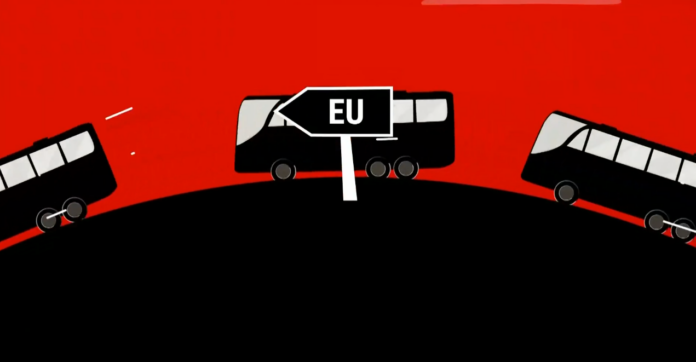Where are the borders of the Balkans and what is the Western Balkans? A somewhat new concept, a little vague and even more questionable. Its borders, although presented as clear by politicians, often seem paradoxical; so we can conclude that the westernmost of our western Balkan neighbors, are not part of this concept at all … Slovenia and Croatia seem to exit the Balkans, in spite of the borders set clearly by geography. These countries, and therefore their citizens, are not Western Balkan, are they?
This concept, as we have found, is not very clear even to those who created it, what does it actually mean for young people, who do not live in the westernmost of the Western Balkans?
As the scope of this term is not quite precise; how big is the actual border, between people themselves, especially young people? How much is globalization, as a ‘global’ concept, present there, and why are the borders between people themselves even more difficult to define and set?
Let’s start with the obvious; you’re reading this text, probably in its original form (unless you’re reading it from Kosovo/Albania), and I’m pretty sure that no one in our newsroom has taken the trouble to translate this into all of the languages of our peoples and nationalities, and imagine, you actually don’t need a translator to read this. The language barrier, although it would not be fair to write it off, because of our “western” neighbors to the south, but the reality is that the “barrier” generally does not exist (if anyone is offended, please insert this text into an automated translation app). Language itself is at the cornerstone of our everyday lives: communication, routine, thinking and what is surprisingly important, music. When a product is launched in a certain language, it’s available to anyone who understands that language, so very often we consume the same products, precisely because of the way they’re served to us. The latest in a series of examples of this are the concerts Serbian singer Aleksandra Prijovic, who has broken all records by selling out five concerts in the Zagreb Arena. Five. Although I wouldn’t dare to analyze the lyrics of young Ms. Prijovic, the fact is that it’s unlikely that such a success, which it really is, would be achieved by someone who sings, say, in Portuguese.
When you enter the media landscape of any ex-Yu country, (I’m talking about the platforms that are statistically most used by young people, so TikTok, YouTube, etc.) you have the feeling that the former country, is not really ‘former’. What is “trending ” is almost invariably the same in every of the neighboring countries, often spilling over even to significantly more western, West countries, like Austria or Germany. So, the cultural, at least ‘popular culture’ phenomenon of the Western Balkans is extremely large and transcends the vague boundaries of the Western Balkans.
Popular music, of course, isn’t the only thing that’s coming out of our region. If we can maybe even argue over whether there are barriers regarding media content, what is indisputable is that the desire to leave their homelands is undeniably shared by all our youth. I recently had a conversation with a well-known Kosovar academic, and he said, “The German Embassy in Pristina issues a hundred work permits a day. It may not seem like much, but considering our population, it’s a frightening statistic.” It seems that in the “holy land” it will not be particularly important who is in power, as simply, no one will be living there. The situation is not much better in other, more Slavic countries. Every year, the equivalent of the population of a small town (not a village, but a town) moves out of Serbia, and Bosnia and Herzegovina, Macedonia and Montenegro seem to be trying hard not to fall behind their neighbors in that… Since it’s not good to be last, right? However, Croatia has also set very high standards in this discipline, setting a good example for its own, non-EU neighbors.
Differences? Certainly they do exist, some perhaps a little more substantial than others – such as religion, although there has been a noticeable and significant rise in atheism and agnosticism among young people, yet still, religious fundamentalism, despite the number of believers essentially being smaller, is somehow the loudest, in all these countries. We’re a strange people, and even in our differences, our mechanisms are somehow still… the same? Another difference is salaries. But not so much among the ‘tribespeople’ themselves, but between them and us. When I say them, I mean the West, but not the Balkans, but Europe, which is very “bad” in the words of Russophiles or Islamic fundamentalists. So bad, that all of us would in most cases be happier if our children lived there. At least that’s what the official statistics reveal.
So my dear politicians, internet warriors and military analysts, without a dictionary or literacy; now as I wait in line at the airport, where we, all the non-Europeans, queue up, I have one message for you: No matter how different we are, if this continues, there will be no differences between us young people – we will all be Ausländers, far away from home.













